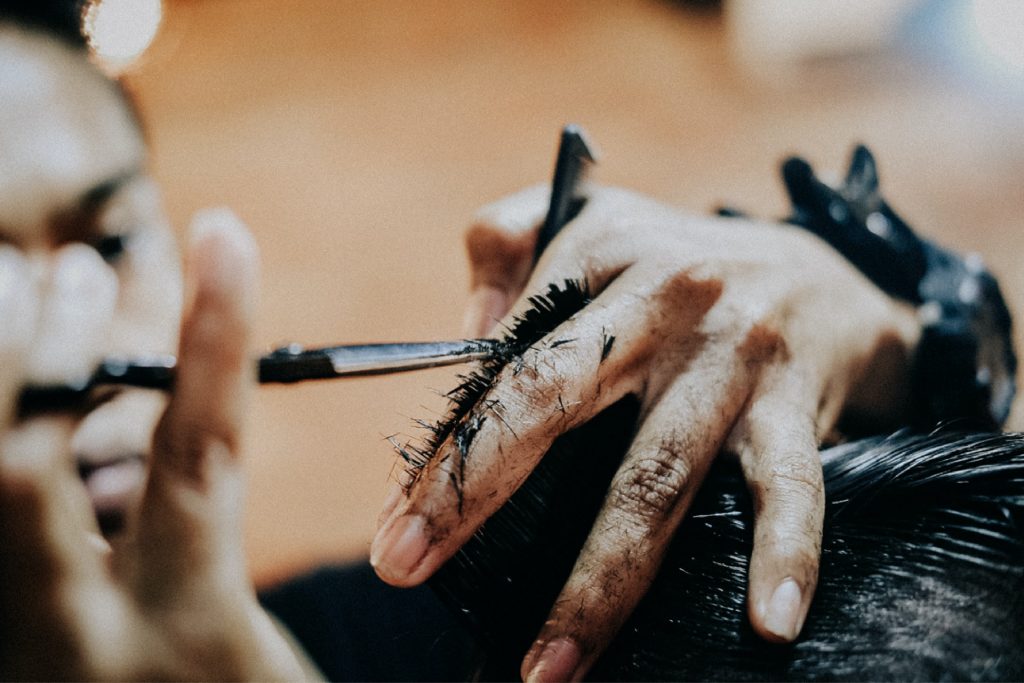“Destroy The Hairdresser” Podcast Explores Eliminating Tips at Hair Salons
Podcast hosts and hair stylists Cyd Charisse and David Bosscher discuss shifting trends in the beauty industry, including eliminating tipping and finding ways to bridge racial gaps at hair salons.

Tipping has been a part of America’s service-based economic and cultural fabric for years. Debates have circulated around the concept relating to the proper amount to tip to why they’re necessary — and everything in between. The conversation has expanded into talks of shifting the tipping model altogether by eliminating the practice in hair salons and the beauty industry at large.
Listen: Stylists Cyd Charisse and David Bosscher challenge the idea of being a service industry.
Cyd Charisse and David Bosscher are stylists and industry professionals who host the podcast “Destroy The Hairdresser,” a business coaching platform for stylists and salon owners designed to “destroy harmful belief systems and teach emotional intelligence within your business,” says Charisse.
Earlier this month, the duo set their comment section ablaze with an Instagram post that read “Hairdressers of the future will not rely on tips.” The statement stirred diverse perspectives and called for more clarity on exactly what this model means and looks like.
“Hairdressers make on average $20,000 a year. That is so low, especially when it costs more than that to go to hair school and to fund your business and do education,” Charisse explains. “So, hairdressers are living off their tips and we’re trying to get hairdressers to realize, what if we charged an hourly rate and tips were not existent; and we were just charging for our worth [and] the tips were included in our higher price point?”
She adds, “We’re really trying to challenge the idea of being a service industry and going back to the craft hairdresser.”
The proposed hourly model suggests that stylists be compensated solely for the time it takes to perform a service. This ideology started to form for Charisse and Bosscher after diving deeper into the history of tipping and learning about its relationship to racism and sexism.
“I think we owe it to our industry to make a lot of changes because we are a segregated community — there’s white salons and Black salons,” Bosscher says. “ And tipping is one of those areas that makes us uncomfortable. Hopefully, through education, connection and social media, we can bridge that gap.”
Trusted, accurate, up-to-date
WDET is here to keep you informed on essential information, news and resources related to COVID-19.
This is a stressful, insecure time for many. So it’s more important than ever for you, our listeners and readers, who are able to donate to keep supporting WDET’s mission. Please make a gift today.
